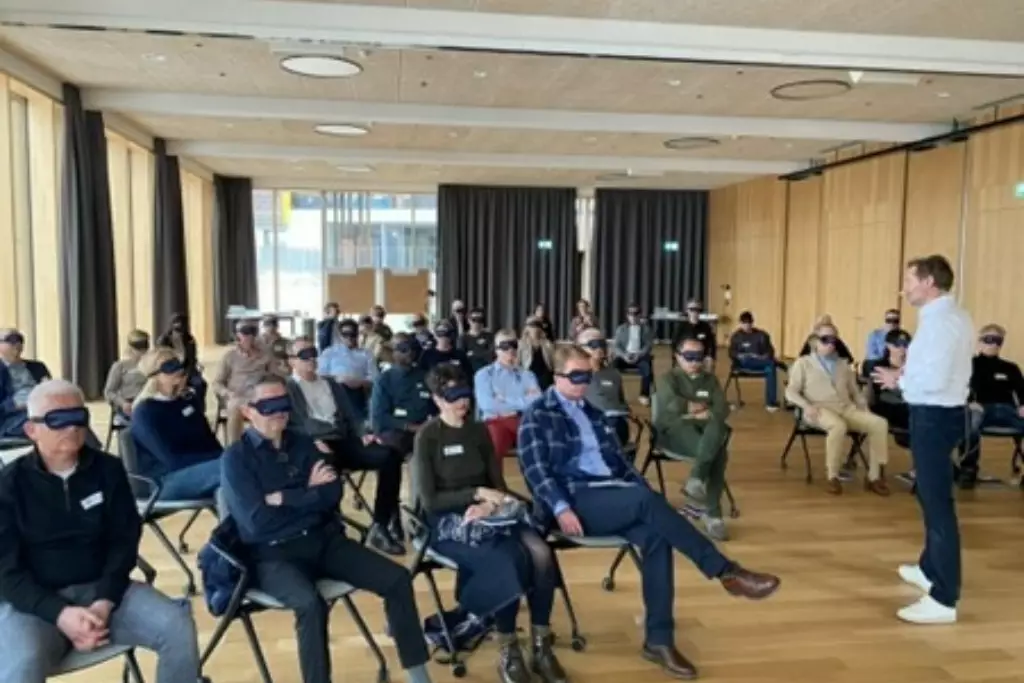Get in touch
What can we learn from death
- Duration
- 5 min read
- Author
- By Ekki
Over the last couple of years we have taken roughly 250 executives to the mountains to reflect about life and purpose. A critical moment at these Mountain Wisdom events is when participants are asked to think some decades ahead and reflect what a friend, a colleague, a kid and the spouse would say at their funeral ceremony. Writing and then reading these obituaries are deeply touching moments for these business leaders and typically some fundamental learnings arise on how to plan for the time that is left of this life. It is also fair to say that some struggle to think about death. ‘Death is probably the best invention of life’, Steve Jobs said at the remarkable commencement speech he gave at Stanford.
‘Die before you die’, is a quote of Rumi, the Sufi sage, suggesting that prior to the final physical death, we have to experience the death of our ego as part of the spiritual journey.
Charles Bukowski builds on this wisdom by stating ‘you have to die a few times before you can really live’.
And if you don’t, Braveheart William Wallace has the message: ‘Every man dies, not every man really lives.’
I have recently read a couple of books related to death and wanted to share some of the key take aways. Interestingly enough all the authors effectively summarized their findings in a small set of pretty consistent messages; this makes it easier for the executive reader to digest them.
For his best selling book, John Izzo interviewed hundreds of wise and old people and summarizes the insights as ‘The five secrets you must discover before you die’:
- Be true to yourself
- Leave no regrets
- Become love
- Live the moment
- Give more than you take
In another best selling book, Bronnie Ware, an Australian nurse accompanying patients on their death beds describes ‘The top five regrets of the dying’, suggesting that many people have not been very successful discovering John Izzo’s secret about ‘leave not regrets’.
- I wish I'd had the courage to live a life true to myself, not the life others expected from me
- I wish I hadn't worked so hard
- I wish I'd had the courage to express my feelings
- I wish I'd had stayed in touch with my friends
- I wish I had let myself be happier
Eugene O’Kelly, CEO of the audit firm KPMG, received the dramatic message about his terminal brain tumor in spring 2005; during his remaining 100 days he managed his dying in a remarkable somehow executive and somehow surprising way. In his book ‘Chasing Daylight’ he and his wife Corinne share some key lessons; and these do not only apply for the process of dying but are suggested as pillars for life:
- The first lesson is to face reality
- The second lesson is to simplify
- The third lesson is to live in the moment
- The fourth lesson is recognising perfection
- The fifth lesson is achieving balance
Another outstanding business man who has been my boss and mentor died of a brain tumor on 9.11.2008. Klaus J. Jacobs had shaped three world-leading companies (Jacobs, Adecco, Barry Callebaut) and at his funeral ceremony he left us with what he called 10 suggestions for a good life. In his native German, he played with the words of 10 Gebote (the 10 commandments) and 10 AnGebote (suggestions). Here they are:
- Stay open and curious; never stop learning
- Keep a close relationship to nature
- Details are important
- Develop your passion
- Keep the joy of life
- Fight for the right argument
- Integrate and socialize
- Enjoy and allow yourself to indulge
- Cultivate humor
- Love
And finally, let you get inspired by the video of Ric Elias who was on the plane that landed on the Hudson River and shares his three learnings in the face of death:
Rather than anxiety and sorrow when thinking about death, I hope that you find inspiration for a great life in these messages. They are all pretty consistent around be yourself, be present, pursue your purpose, relate to people and nature.
- Where do you stand when you reflect on these messages?
- What are areas that you have neglected?
- What are you going to do about it?
With this I wish you a beautiful, purposeful and happy life.
Warmly yours,
ekki
Latest Field Notes
More field notes that may interest you.

Go home - going home

Your Leadership Space – Obstacle or Enabler?
